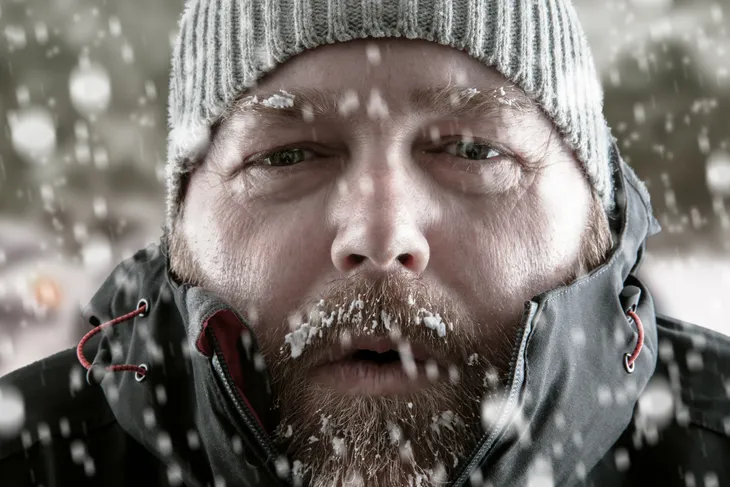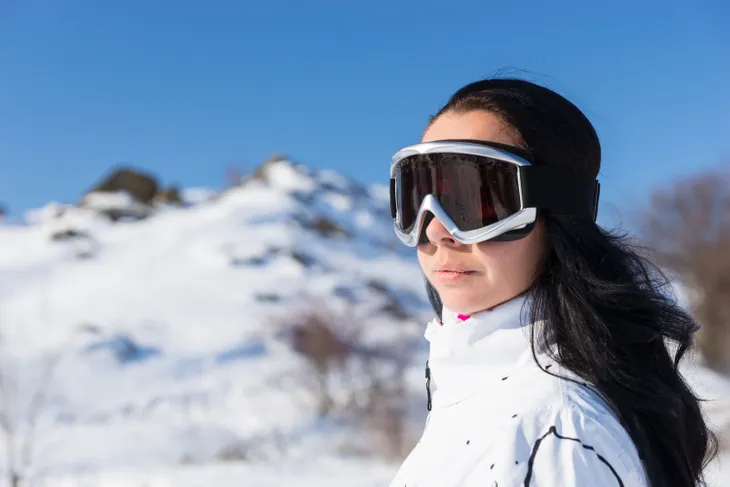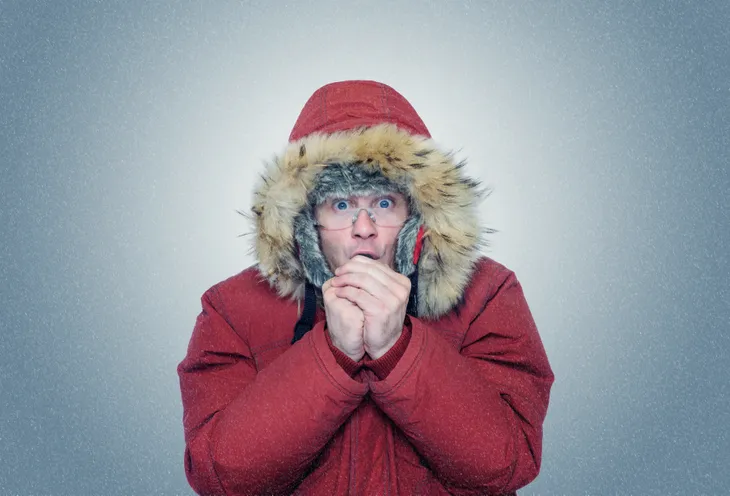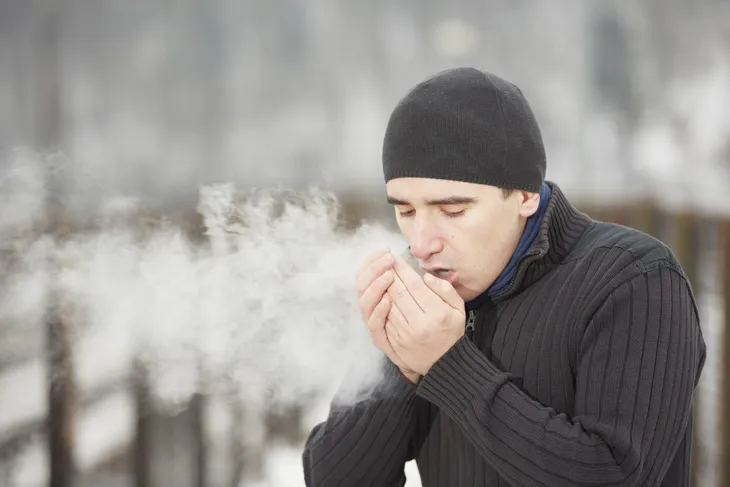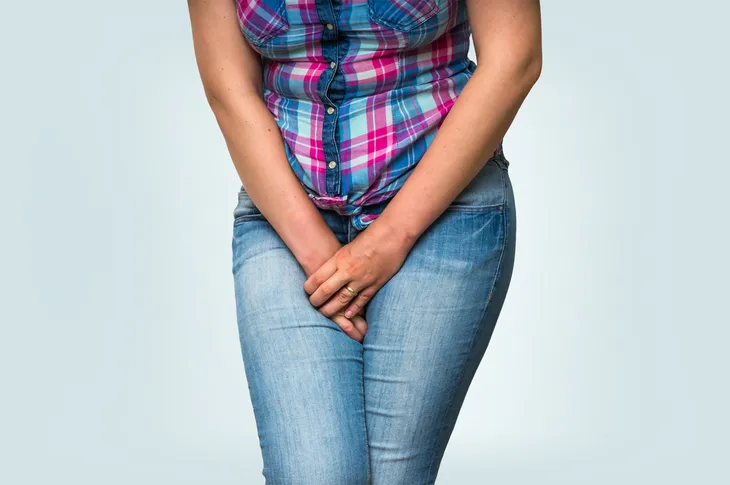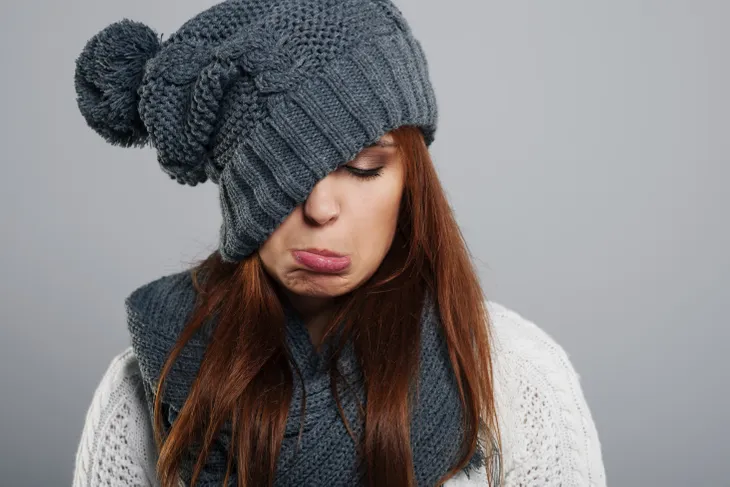The planet was very hot for millions of years, and scientists are saying it’s getting warmer again. So the question is… are humans really supposed to be able to function in the cold? Well – of course we are. However, our bodies have adapted some rather strange ways to deal with it.
Going out into the cold can be hard on your system – even for those in the northern U.S. that deal with frigid temperatures for months every year. Here are eight weird ways your body deals with it…
Brain Freeze
We’re not talking about the effect of slurping on a very cold drink and having the sensation travel quickly from the roof of your mouth into your skull. We’re talking about the fact that your brain actually stops functioning as efficiently when it’s very cold outside, as noted by Reader’s Digest.
“Once your body goes into a hypothermic state – a core temperature that’s too low –your brain and nervous system have a harder time functioning and maintaining normal thought,” explains the source. It explains that this can cause hunters or hikers to get lost, or make people do strange things – like remove all their clothing as a response to the body dumping out heat, which actually makes the person feel too hot.
Snow Blindness
Apparently “excessively” cold temperatures can reduce the quality of your vision, at least according to the Huffington Post. This is from a combination of cold weather, cold winds, and snow, it adds.
“Snow blindness, or photokeratitis, is temporary eye pain and discomfort after exposure to too much ultraviolet (UV) light. It’s like a sunburn on your eyes. It’s usually not serious and will heal on its own within a few days,” reports WebMD. You can get around this by wearing the proper protective eyewear when skiing or taking part in another winter sport, or wearing good quality sunglasses whenever you can (even though sunglasses are more associated with summer).
Energy Conservation
Cold temperatures make things slooowwww dooowwwn, and the same goes for your metabolism. Accuweather.com explains that the “body will inherently source and spend its energy levels differently in order to keep itself warm.”
It does this by actually limiting certain muscle contractions and reallocating the amount of carbohydrates used, it adds. In colder weather, more carbs take on the job of producing lactic acid, which combined with the slowing of your nervous system helps you retain it, the source explains.
Shiver all Over
If you were sitting in a warm room and you started to shake, you’re either about to go into a job interview or you may have a neurological disorder. In cold weather, shaking is much more commonplace as it’s a response to cold.
While people have recognized shivering as a response to winter for centuries, it wasn’t until about 10-years ago that researchers pinpointed the system that’s responsible for this reaction to cold. A ScienceDaily article from 2007 explains that researchers at Oregon Health & Science University’s Neurological Sciences Institute uncovered “the brain’s wiring system, which takes temperature information from the skin and determines when a person should start shivering.” Shivering is usually the body’s last response to try and maintain internal temperature, it adds.
Internal Flow
Cold weather also triggers some interesting mechanisms in your circulatory system. Accuweather.com explains that cold temperatures cause blood vessels to constrict “and blood flow resistance to increase,” notes the source.
First, your body will reduce blood flow to your skin, and then to your extremities such as fingers and toes (which is why these body parts tend to be at risk for frostbite). The idea is to keep the blood away from the surface to reduce the amount of heat loss. “The more heat the body can conserve, the more successful the body is at keeping its core temperature in a healthy range,” it adds.
Increased Need to Pee
Ever noticed that walking around in a winter wonderland also gives you the urge to go to the bathroom more often? You’re not imagining it. Reader’s Digest explains that one of the side effects of vasoconstriction (the narrowing of blood vessels) “forces fluid to concentrate in your core.”
Your brain takes this as a sign that you’re full of liquid, and it does it the best way it knows how – through urinating. This is skiers will use the potty right before hitting the slopes and then have to go again after heading outside, adds the source.
Your Mood Might Drop
The Huffington Post says the winter blues are real – and your happiness might drop with the thermometer. This is primarily due to the dip in daylight hours, which can lead to a lack of Vitamin D that your body gets from the sun’s rays, it adds.
You may have occasional bouts of melancholy during the winter months, or you could develop full-on seasonal affective disorder (SAD) that’s considered a mental health condition, says the source. The answer is more exercise, more time outside during the day, and possibly some Vitamin D supplements, suggests the Post.
Rosy Faces
Rosy cheeks may look cute in holiday cards, but not so much when your nose gets red and neck gets splotchy. But redness is a fact of life for many people that are out in the cold, and the cause can be traced back to the reduction of blood flow to the body’s surface.
So why does your facial skin get red with blood in the cold? “What actually happens to cause your cheeks to turn red… is when the blood vessels in your face dilate and then literally burst after narrowing,” says Bustle.com.

